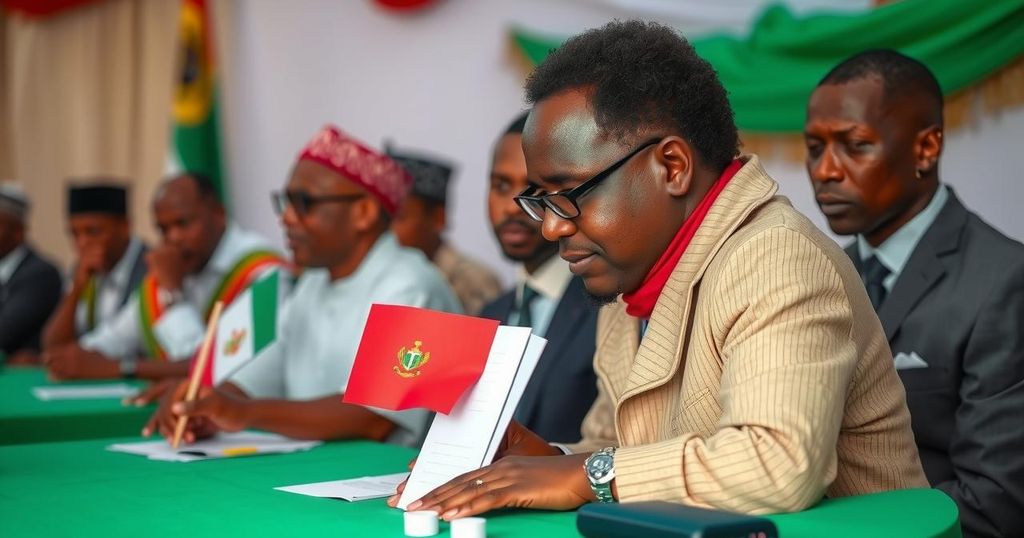Chad Initiates First Parliamentary Elections in Over a Decade Amid Controversy
Chad is holding its first parliamentary elections in over a decade, a continuation of its complex political transformation following the death of former leader Idriss Deby. Despite the government’s intent to establish democracy, widespread opposition boycotts raise questions about the elections’ legitimacy, reflecting the ongoing struggle between the ruling party and dissenting voices amidst a backdrop of economic and security challenges.
Chad has commenced its first parliamentary elections in over a decade, a pivotal moment marking a transition for the country post-Idriss Deby, who passed away in 2021. The elections, held across parliamentary, regional, and municipal platforms, aim to culminate a transitional period initiated following Deby’s death and the subsequent military takeover by his son, Mahamat Idriss Deby. Despite the government’s assertions that the vote is a step towards democracy, significant skepticism remains among opposition parties, many of whom have opted to boycott the elections, labeling them a facade aimed at legitimizing a political dynasty.
The electoral process is set against a backdrop of enduring economic challenges, political tensions, and security threats. Although Chad is considered one of Africa’s poorest countries, these elections symbolize a commitment to democratization amidst lingering issues. Approximately 8.3 million voters are eligible to elect representatives for the nation’s 188-seat parliament, with an array of parties and candidates participating. However, the absence of full opposition involvement raises questions regarding the elections’ credibility.
Opposition leaders have articulated concerns about fairness and inclusivity in the electoral process following years of postponed elections. Many opposition parties accuse the ruling Patriotic Salvation Movement (MPS) of oppressive practices and electoral malpractice, further complicating the nation’s political landscape. The recent history of violence against protesters and contested elections has exacerbated mistrust in the electoral process. As the nation moves forward, the international community watches closely to evaluate the integrity of these elections and their implications for Chad’s democratic trajectory.
Chad, a country long depicted by political instability and economic hardships, has struggled to organize parliamentary elections since 2011 due to multiple postponements attributed to financial constraints and external factors such as the COVID-19 pandemic. The death of longtime leader Idriss Deby Itno in 2021 led to a military transition headed by his son, Mahamat Idriss Deby, creating additional challenges for the restoration of democratic processes. The absence of parliamentary elections for over a decade has intensified calls from opposition parties for political reform and genuine democratic engagement.
In conclusion, Chad’s parliamentary elections represent a crucial juncture for the nation, striving to mark a return to democratic practices following years of authoritarian rule. However, the significant boycott by opposition parties and the lack of inclusivity raises substantial concerns regarding the elections’ integrity. The unfolding situation in Chad warrants close observation, as its implications will be far-reaching for both its governance and democratic aspirations.
Original Source: www.aljazeera.com




Post Comment